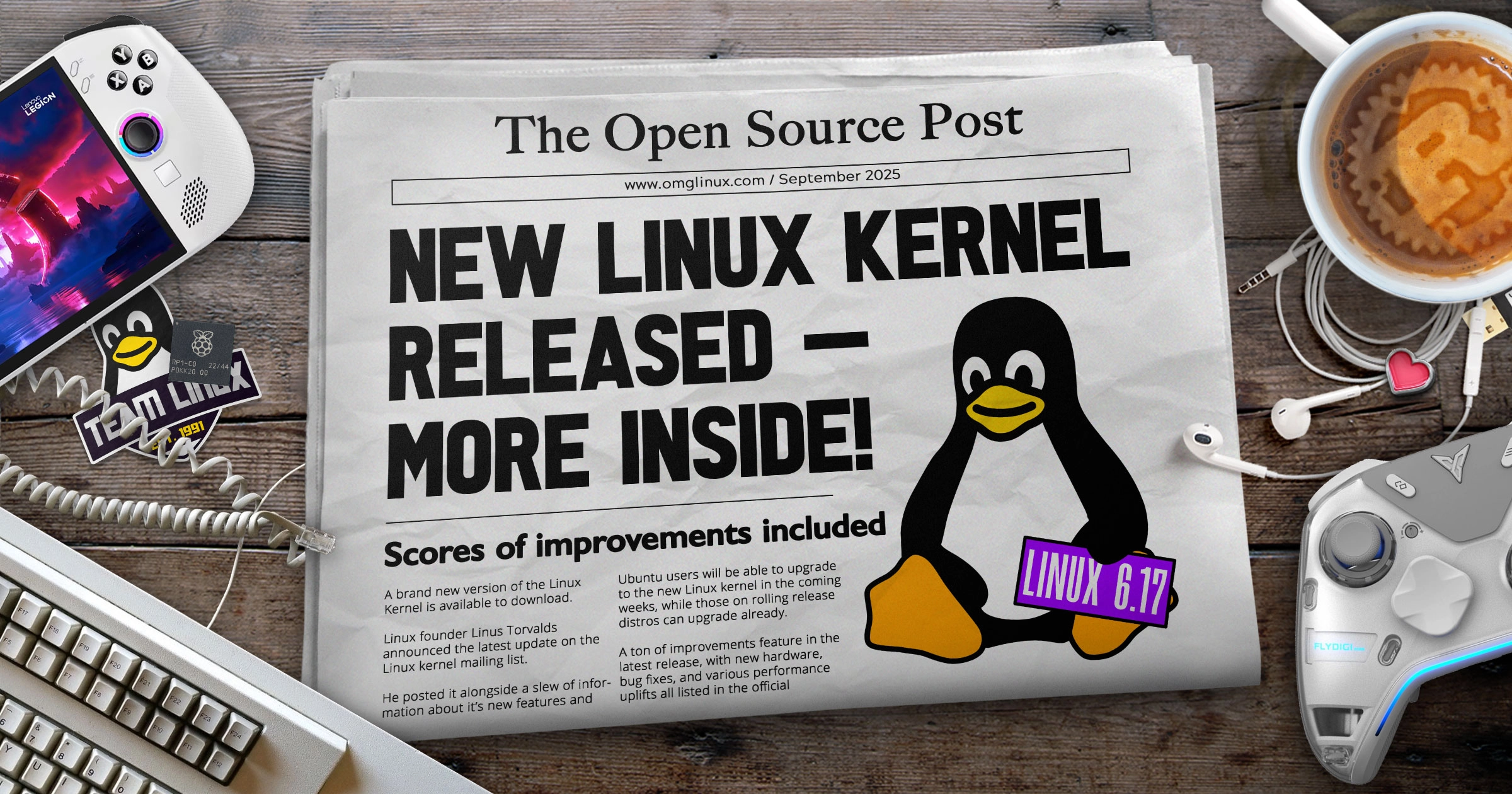Linus Torvalds has announced the release of Linux kernel 6.17, bringing improved hardware support and several core system enhancements. This update introduces graphic drivers for the latest Intel ‘Panther Lake’ laptops, better power management features for devices with AMD hybrid GPUs, and resolves a long-standing software bug from 1993. Additionally, it incorporates features to extend SSD longevity.
In his release announcement on the Linux Kernel Mailing List (LKML), Torvalds noted, “No huge surprises this past week, so here we are, with kernel 6.17 pushed out and ready to go.” The new kernel will ship with Ubuntu 25.10, including in its recently released beta build. Users on the long-term support release, Ubuntu 24.04 LTS, can expect kernel 6.17 as part of the next hardware enablement update in early 2026.
What’s New in Linux 6.17?
Graphics & Gaming
Intel Xe3 integrated graphics are now enabled by default in Linux 6.17, benefiting users who purchase new Intel ‘Panther Lake’ laptops. Core Ultra Series 2 chips received new webcam driver support, enhancing video calls. AMD hybrid GPU laptops gain SmartMux support, allowing for automatic switching between integrated and discrete graphics based on workload.
The kernel also supports Lenovo WMI Gaming Series Drivers, facilitating compatibility with gaming devices, and adds standardized keycode support for "performance boost" keys on Dell and Alienware laptops.
Filesystem Improvements
The kernel genuinely enhances filesystem performance, with improvements for NVMe SSDs that allow efficient zero-writing without actual I/O, thereby reducing wear. Moreover, the EXT4 filesystem sees enhanced block allocation scalability, particularly beneficial for I/O-heavy tasks like database queries.
Btrfs adds experimental large-folio support, which reduces memory overhead when managing large files, while EROFS supports metadata compression and quicker directory access.
Laptop and Hardware Support
Linux 6.17 enhances support for M1 and M2 Macs, allowing proper rebooting, and adds support for the ASUS Zenbook A14 Snapdragon X1 Plus/Elite laptops. Support for various other devices, including HP EliteBook models and USB audio offloading for more mobile devices, has also been expanded.
Core Enhancements
A significant addition is the merging of AMD’s Hardware Feedback Interface, which enhances performance and power management by providing better information regarding core usage.
Linux 6.17 also simplifies managing mitigation for CPU vulnerabilities, such as Spectre and Meltdown, through new Attack Vector Controls, aimed at improving administrative ease.
Minor Enhancements and Removals
Several obsolete codes have been removed, including the old packet-writing optical driver, and a bug related to ELF program header handling from 1993 has been rectified.
For users wanting to explore more about the release, detailed merge reports can be found here and here.
Upgrade to Linux 6.17
The kernel is available for download at kernel.org, but compiling from source is necessary, which might be challenging for some users. Ubuntu 25.10 will come with Linux 6.17 by default, while Ubuntu 24.04 LTS users will have the kernel back-ported in early 2026.
While the new kernel won’t officially be packaged for other supported Ubuntu releases, users can opt for Canonical Mainline DEBs or third-party PPAs, though such methods come without guarantees or support and may result in compatibility issues.
